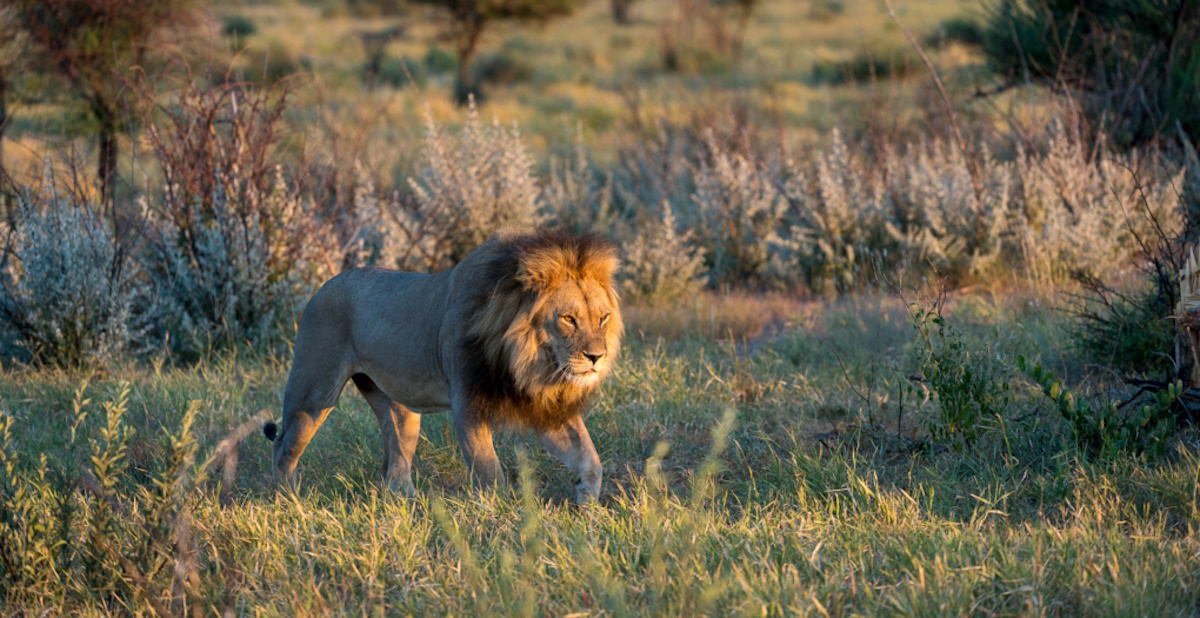The Majestic Lions of Botswana

The African lion (Panthera leo) is one of the most iconic animals in Botswana and a key member of the famous "Big Five". These magnificent creatures are a major draw for safari-goers and play a crucial role in Botswana's ecosystem.
Quick Facts about Lions in Botswana
- Scientific Name: Panthera leo
- Average Weight: Males 150-250 kg, Females 120-182 kg
- Lifespan in the Wild: 10-14 years
- Diet: Carnivorous (mainly large ungulates)
- Social Structure: Live in prides
- Conservation Status: Vulnerable
Lion Population in Botswana
Botswana is home to one of the largest and most stable lion populations in Africa. Recent estimates suggest that there are between 1,500 to 2,200 lions in Botswana, making it a crucial country for lion conservation efforts.
Where to See Lions in Botswana
Lions can be found in several of Botswana's national parks and game reserves. Some of the best places to spot lions include:
- Chobe National Park
- Moremi Game Reserve
- Central Kalahari Game Reserve
- Savuti
- Okavango Delta
Lion Behavior and Ecology
Lions in Botswana exhibit fascinating behaviors that have adapted to the unique landscape:
- Social Structure: Lions live in prides, typically consisting of related females, their cubs, and a coalition of males.
- Hunting: While males are capable hunters, females do most of the hunting for the pride. They often work together to take down large prey like buffalo or even young elephants.
- Adaptation to Wetlands: In the Okavango Delta, lions have adapted to hunting in water, a unique behavior not commonly seen in other lion populations.
- Nocturnal Activity: Lions are most active at night, using the cover of darkness for hunting and territorial patrols.
Conservation Efforts
Despite Botswana's healthy lion population, these big cats face several threats, including habitat loss, human-wildlife conflict, and poaching. Several conservation initiatives are in place to protect Botswana's lions:
- The Botswana Predator Conservation Trust conducts research and implements conservation strategies.
- Community-based conservation programs aim to reduce human-lion conflict.
- Anti-poaching units patrol protected areas to prevent illegal hunting.
Visiting Botswana and participating in responsible wildlife tourism can contribute to lion conservation by providing economic incentives for their protection.
Did You Know?
Male lions in Botswana's Okavango Delta have been observed swimming across deep channels to reach new territories or hunt prey. This behavior is rarely seen in other lion populations!
Lions are a true symbol of Africa's wild beauty, and Botswana offers some of the best opportunities to see these magnificent creatures in their natural habitat. Whether you're watching a pride lounging in the shade or witnessing a thrilling hunt, encountering lions in Botswana is an unforgettable experience.